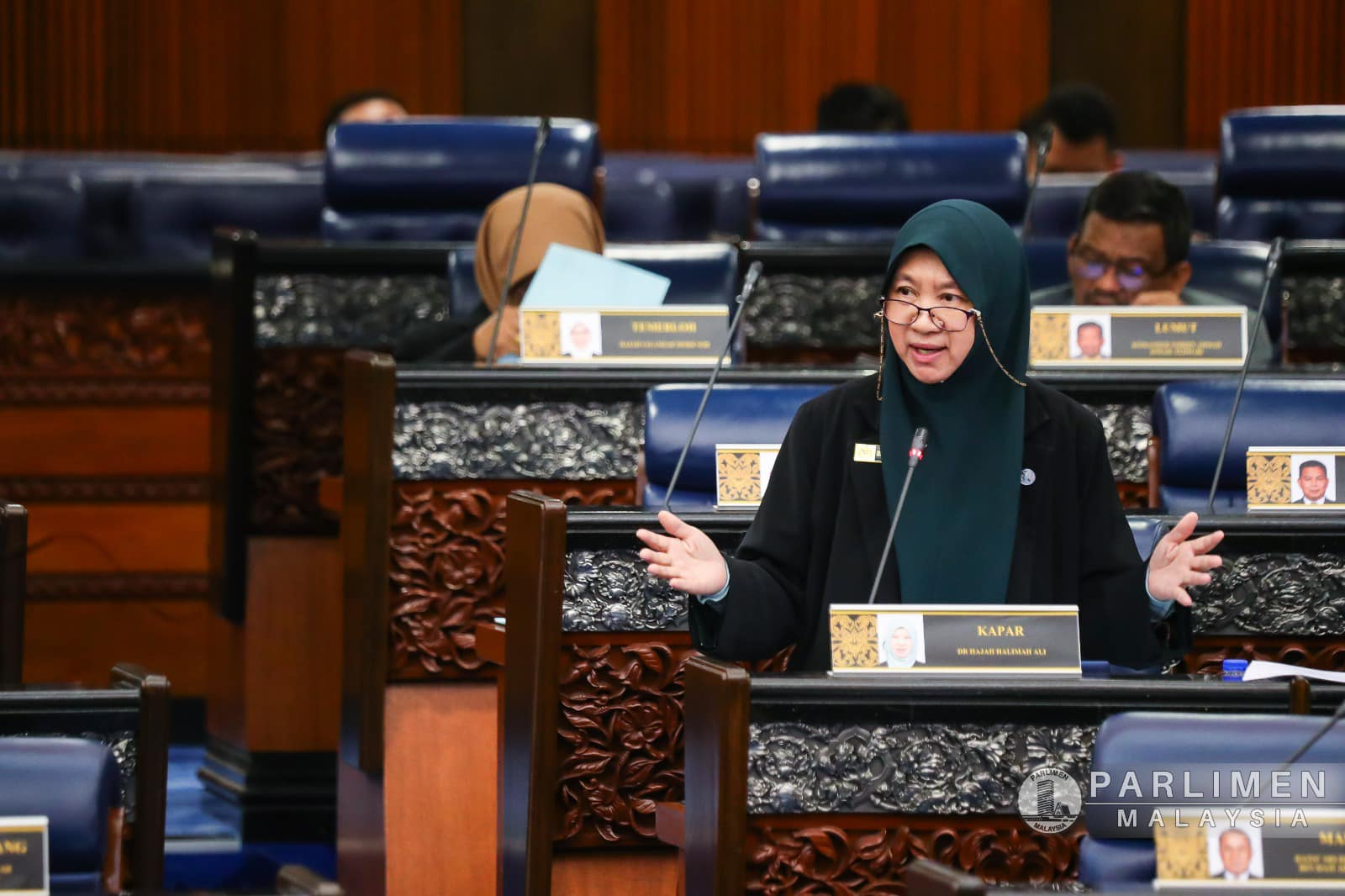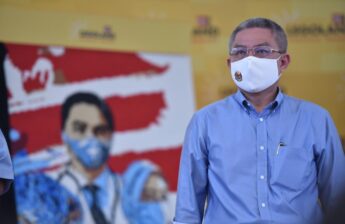KUALA LUMPUR, May 26 — Kapar MP Dr Halimah Ali yesterday used Health Minister Dr Zaliha Mustafa’s ministerial decision to remove liquid nicotine from the Poisons Act 1952 – vetoing the Poisons Board – as an example of the dangers of absolute power.
The PAS lawmaker gave the example as a means to support her argument against the powers that will be conferred upon the minister under the Sustainable Energy Development Authority (Amendment) Bill 2023 during debate on the bill in the Dewan Rakyat yesterday.
“The Honourable Minister, don’t take it personally because we want good governance – total power corrupts. It is not only in the Malaysian Parliament, but it’s all over the world. It’s a universal principle of good governance,” Dr Halimah told Parliament.
“There is an issue that was quite controversial before this where there was a minister – I don’t know whether to say [the name] or not…where the health minister acted to exempt nicotine in vape liquid despite health experts advising otherwise.
“So, I’m still repeating, if possible, we should not dispute the authority of the minister and maybe, [the minister] has some good intentions. But, how nice it would be if the Cabinet was collectively responsible, and we welcome that the MA63 (Malaysia Agreement 1963) and federalism that wants to be translated into reality is good. But we need to be careful.”
Clause 2 of the Sustainable Energy Development Authority amendment bill increases the minister’s powers to suspend any or all provisions of the Sustainable Energy Development Authority Act in different areas within the country.
Natural Resources, Environment and Climate Change Minister Nik Nazmi Nik Ahmad reportedly told Parliament that clauses were included into the Renewable Energy (Amendment) Bill 2023 and the Sustainable Energy Development Authority amendment bill to empower the Sabah state government to manage the regulation of its electricity supply.
Both bills were passed by the Dewan Rakyat in a voice vote yesterday.
Last month, International Islamic University Malaysia (IIUM) rector Prof Dzulkifli Abdul Razak condemned Dr Zaliha’s decision to exempt liquid nicotine from the Poisons List – in a veto of the Poisons Board’s unanimous objection against the proposal – as “undemocratic” and “unethical”.
Dzulkifli called the move a betrayal and held that the declassification of liquid and gel nicotine should come only after a bill to regulate tobacco and vape products is presented to Parliament.
The deregulation of liquid nicotine last March 31 effectively legalised the sale of e-cigarettes and vape with nicotine to anyone, including minors aged under 18, without any restrictions whatsoever.
Section 6 of the Poisons Act empowers the health minister to amend the Poisons List “after consultation” with the Poisons Board.
When asked why she deregulated liquid nicotine before the passage of the tobacco and vape control bill, Dr Zaliha told CodeBlue in Geneva, Switzerland, last Sunday that Cabinet wanted to impose a tax on e-liquids with nicotine by April 1 and that the government would table the bill next month, should today’s Cabinet meeting approve it.
Dr Zaliha told the Dewan Rakyat recently in a written reply that the bill will contain stringent regulations concerning vape flavours and packaging.








